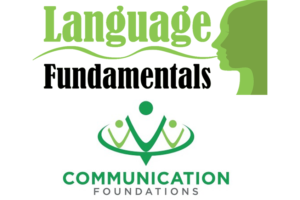Aphasia
What is Aphasia?
Aphasia is a language impairment caused by some type of damage to the brain (typically but not always a stroke, head trauma or tumor). It can effect a specific area of the brain from head trauma or a brain tumor. Aphasia can come in many different forms, but they are broadly categorized into two groups:- Expressive aphasia is a type of aphasia that involves saying what you want to say
- Receptive aphasia is a type of aphasia that involves understanding what is said
Patients with this receptive aphasia usually have profound language comprehension deficits, even for single words or simple sentences. This is because individuals have damage in brain areas that are important for processing the meaning of words and spoken language. Such damage includes left posterior temporal regions of the brain, which are part of what is known as Wernicke’s area, which is why it is also known as Wernicke’s aphasia.
Speech Language Pathologists from Language Fundamentals are specially trained to treat patients with aphasia. After a comprehensive examination to assess the exact areas of language affected An SLP can create a comprehensive treatment plan to systematically work on language impairments with the patient.The speech therapist can work with patients with aphasia to help restore impaired language abilities as much as possible, maximize remaining language function, and learn techniques to compensate for language deficits. Compensatory techniques taught may include using gestures, using pictures, writing, or communication boards or cards.
If you or someone you know is experiencing a trouble in communication skills due to damage of the brain, please contact a professional at Language Fundamentals today.
ARE YOU READY TO GET STARTED?
CONTACT US TODAY TO SCHEDULE AN APPOINTMENT

